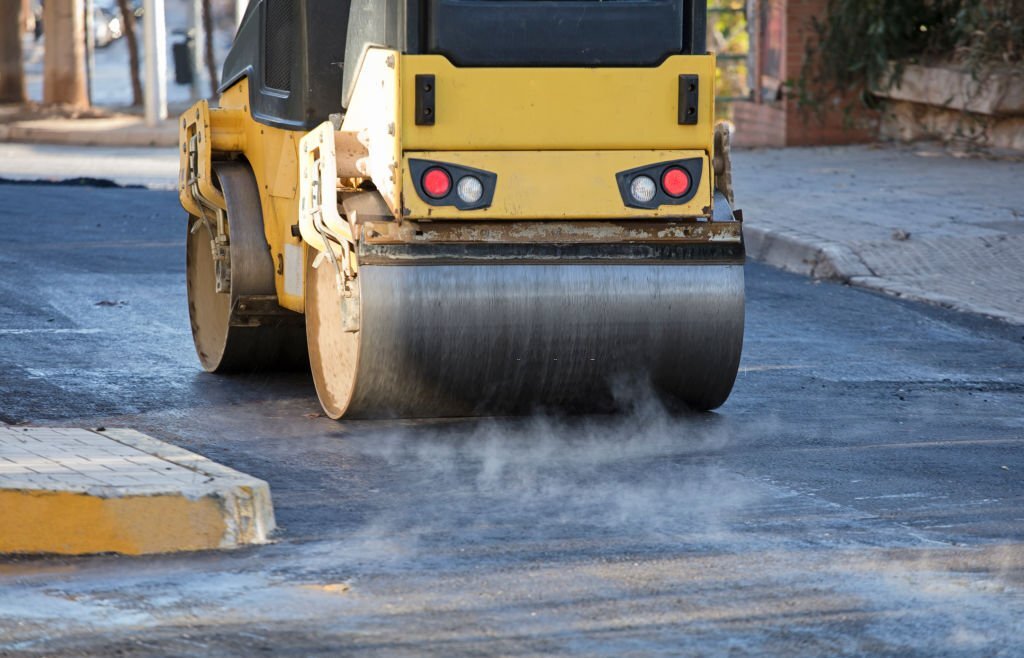
The paving industry relies on a range of specialized heavy equipment to construct and maintain roads, highways, parking lots, and other paved surfaces. These heavy machines are designed to handle the challenges of paving projects efficiently and effectively. In this comprehensive article, we will explore the different types of heavy equipment commonly used in the paving industry, including asphalt pavers, compactors, milling machines, and more. Discover how these heavy machines contribute to the success of paving projects, ensuring the construction of smooth and durable roadways.
1. Asphalt Pavers
Asphalt pavers are the workhorses of the paving industry, responsible for laying hot mix asphalt (HMA) to create road surfaces:
Track and Wheeled Pavers
Asphalt pavers are available in both track and wheeled configurations, offering versatility and maneuverability on construction sites.
Screed Technology
The screed is a crucial component of asphalt pavers, responsible for leveling and smoothing the asphalt surface.
Highway Class Pavers
Highway-class pavers are designed for large-scale road construction projects, providing higher productivity and efficiency.
2. Compactors
Compactors are used to compact and compress asphalt and other materials to achieve the desired density and durability:
Vibratory Rollers
Vibratory rollers use vibrating drums to compact materials effectively, ensuring uniform density across the surface.
Tire Rollers
Tire rollers are used for finishing and sealing asphalt surfaces, providing a smooth and polished finish.
Pneumatic Rollers
Pneumatic rollers are equipped with rubber tires, ideal for compacting cohesive and non-cohesive materials.
3. Milling Machines
Milling machines are utilized for removing old pavement surfaces before repaving:
Cold Milling Machines
Cold milling machines use rotating teeth to remove the existing pavement, creating a smooth base for the new surface.
Half-Lane and Full-Lane Milling
Milling machines come in different sizes, including half-lane and full-lane options, suitable for various project scales.
Reclaimers
Reclaimers are specialized milling machines that pulverize and mix old pavement materials for recycling and reuse.
4. Road Planers
Road planers, also known as cold planers, are used for precise cutting and profiling of road surfaces:
Depth Control
Road planers offer precise depth control, allowing for the accurate removal of specific layers of pavement.
Profile and Texture Adjustment
Road planers can adjust the road surface’s profile and texture to meet specific design requirements.
Concrete Planers
Concrete planers are designed to remove concrete surfaces, making them suitable for road repair and maintenance.
5. Sweepers
Sweepers play a vital role in keeping construction sites clean and clear of debris:
Mechanical Broom Sweepers
Mechanical broom sweepers use rotating brushes to sweep and collect loose materials from the road surface.
Vacuum Sweepers
Vacuum sweepers use powerful suction to remove fine particles and debris, leaving a clean surface.
Air Sweepers
Air sweepers blow compressed air to dislodge and remove dust and debris from road surfaces.
6. Material Transfer Vehicles (MTVs)
Material transfer vehicles enhance the efficiency of asphalt paving operations:
Continuous Operation
MTVs allow continuous asphalt mix delivery to the paver, reducing trucking interruptions.
Temperature Control
MTVs maintain the asphalt mix at the desired temperature, preventing premature cooling.
Uniform Material Distribution
MTVs ensure consistent and uniform material distribution for a smooth and even surface.
7. Joint Heaters
Joint heaters are used to preheat asphalt to achieve proper bonding in longitudinal joints:
Joint Preparation
Joint heaters warm the pavement edges before asphalt placement to ensure a secure bond.
Reduced Segregation
Heating the joints reduces the risk of segregation and enhances pavement performance.
Improved Joint Longevity
Properly heated joints result in longer-lasting and more durable pavement surfaces.
8. Concrete Pavers
Concrete pavers are used for constructing concrete roadways and surfaces:
Slipform Pavers
Slipform pavers are equipped with a movable mold, allowing for continuous concrete placement.
Curb and Gutter Pavers
Curb and gutter pavers are specialized machines used to construct curbs and gutters along roadways.
Texture and Finishing Options
Concrete pavers offer various texture and finishing options to achieve specific surface characteristics.
Conclusion
The paving industry relies on a wide array of heavy equipment to construct and maintain roadways, highways, and other paved surfaces. Asphalt pavers, compactors, milling machines, and other specialized heavy machinery play integral roles in achieving efficient and high-quality paving projects. Whether it’s laying asphalt, compacting materials, removing old surfaces, or achieving precise profiles, each type of equipment contributes to the success and durability of the final pavement. As technology continues to advance, the paving industry will continue to benefit from the innovations in heavy equipment, resulting in smoother and safer roadways that support modern transportation needs.

